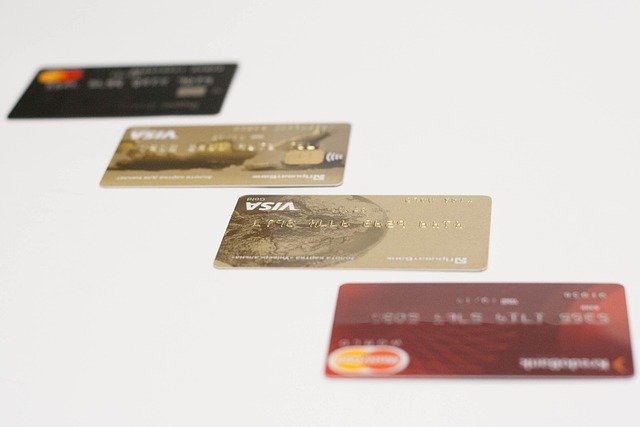Compare Credit Card Offers in the UK: Find the Card That Matches Your Lifestyle and Spending Habits
From cashback benefits to travel perks, the UK credit card market continues to grow with offers tailored to every lifestyle. Whether you're aiming to save money, build your credit history, or access exclusive rewards, this guide will help you explore the best options and understand what truly matters when choosing a credit card in today’s financial landscape.

What Are the Best Credit Card Options for UK Residents?
The best credit card options for UK residents vary significantly based on individual financial circumstances and spending patterns. Premium cards like American Express Platinum and Barclays Avios Plus offer extensive travel benefits and higher credit limits, making them ideal for frequent travellers with excellent credit scores. For everyday use, cashback cards such as the American Express Cashback Credit Card or Santander All in One provide straightforward rewards on purchases without complex point systems.
Balance transfer cards remain popular among UK consumers seeking to consolidate existing debt, with providers like MBNA and Virgin Money offering 0% interest periods extending up to 29 months. Meanwhile, building credit options include Aqua and Capital One cards designed specifically for those establishing or rebuilding their credit history.
How Do Credit Cards for People with Average Credit Score Work?
Credit cards for people with average credit score typically feature moderate interest rates ranging from 18% to 35% APR, depending on the provider’s assessment. These cards often require proof of steady income and may include credit-building features that help improve your score over time through responsible usage and timely payments.
Providers like Tesco Bank and TSB offer cards specifically designed for average credit applicants, featuring reasonable credit limits starting around £1,200. Many include eligibility checkers that show your likelihood of approval without affecting your credit score, helping you make informed applications without unnecessary hard searches on your credit file.
Which Travel Rewards Credit Cards UK Offers Stand Out?
Travel rewards credit cards UK market features several standout options for frequent travellers. The British Airways American Express Premium Plus Card offers generous Avios points earning rates, free checked bags, and airport lounge access. Virgin Atlantic’s Reward Credit Card provides Flying Club miles and priority boarding benefits.
For flexible travel rewards, the Chase Sapphire cards (where available) and certain Barclays travel cards offer points that can be transferred to multiple airline and hotel partners. These cards typically include travel insurance coverage, foreign transaction fee waivers, and airport lounge access, making them valuable for international travellers who can maximise the benefits to offset annual fees.
How to Choose the Right Credit Card for Your Needs?
Learning how to choose the right credit card requires evaluating your spending habits, financial goals, and current credit situation. Start by analysing your monthly expenses to identify where you spend most: groceries, fuel, dining, or online shopping. Match these patterns with cards offering higher rewards rates in your primary spending categories.
Consider your payment behaviour honestly. If you typically carry balances, prioritise cards with lower interest rates over rewards features. However, if you pay off balances monthly, focus on maximising rewards and benefits. Factor in annual fees by calculating whether your expected rewards and benefits exceed the cost. Always check eligibility requirements before applying to avoid unnecessary credit inquiries.
Understanding Annual Percentage Rates and Fees Across UK Cards
Understanding annual percentage rates and fees is crucial for making informed credit card decisions. APRs in the UK typically range from 6.9% for premium customers to over 40% for those with limited credit history. The representative APR shown in advertisements applies to at least 51% of accepted applicants, but your actual rate may differ based on your creditworthiness.
Common fees include annual fees ranging from £0 to £500+, foreign transaction fees of 2.5-3%, cash advance fees of 3-5%, and late payment charges up to £12. Balance transfer fees typically cost 1-4% of the transferred amount. Premium cards often justify higher annual fees through valuable perks like travel insurance, concierge services, and exclusive access to events or airport lounges.
Real-World Credit Card Costs and Provider Comparison
UK credit card costs vary significantly across providers, with annual fees, interest rates, and reward structures creating diverse value propositions for different users. Understanding these variations helps identify the most cost-effective options for your specific spending patterns and financial circumstances.
| Card Type | Provider | Annual Fee | Representative APR | Key Benefits |
|---|---|---|---|---|
| Cashback | American Express | £25 | 22.9% | Up to 5% cashback on purchases |
| Travel Rewards | British Airways Amex | £195 | 22.9% | 2 Avios per £1 spent, free companion voucher |
| Balance Transfer | MBNA | £0 | 21.9% | 0% for 29 months on transfers |
| Building Credit | Aqua Classic | £0 | 34.9% | Credit building tools and monitoring |
| Premium Travel | Amex Platinum | £575 | 22.9% | Airport lounge access, travel insurance |
Prices, rates, or cost estimates mentioned in this article are based on the latest available information but may change over time. Independent research is advised before making financial decisions.
Making Your Final Credit Card Decision
Selecting the right credit card requires balancing costs, benefits, and your financial habits. Premium cards with higher annual fees often provide excellent value for frequent travellers through lounge access, travel insurance, and enhanced rewards rates. However, fee-free options may better serve occasional users who prioritise simplicity over premium perks.
Consider starting with a card that matches your current spending level and credit score, then upgrading as your financial situation improves. Remember that responsible usage—keeping balances low and making payments on time—remains more important than the specific card you choose for building long-term financial health.




